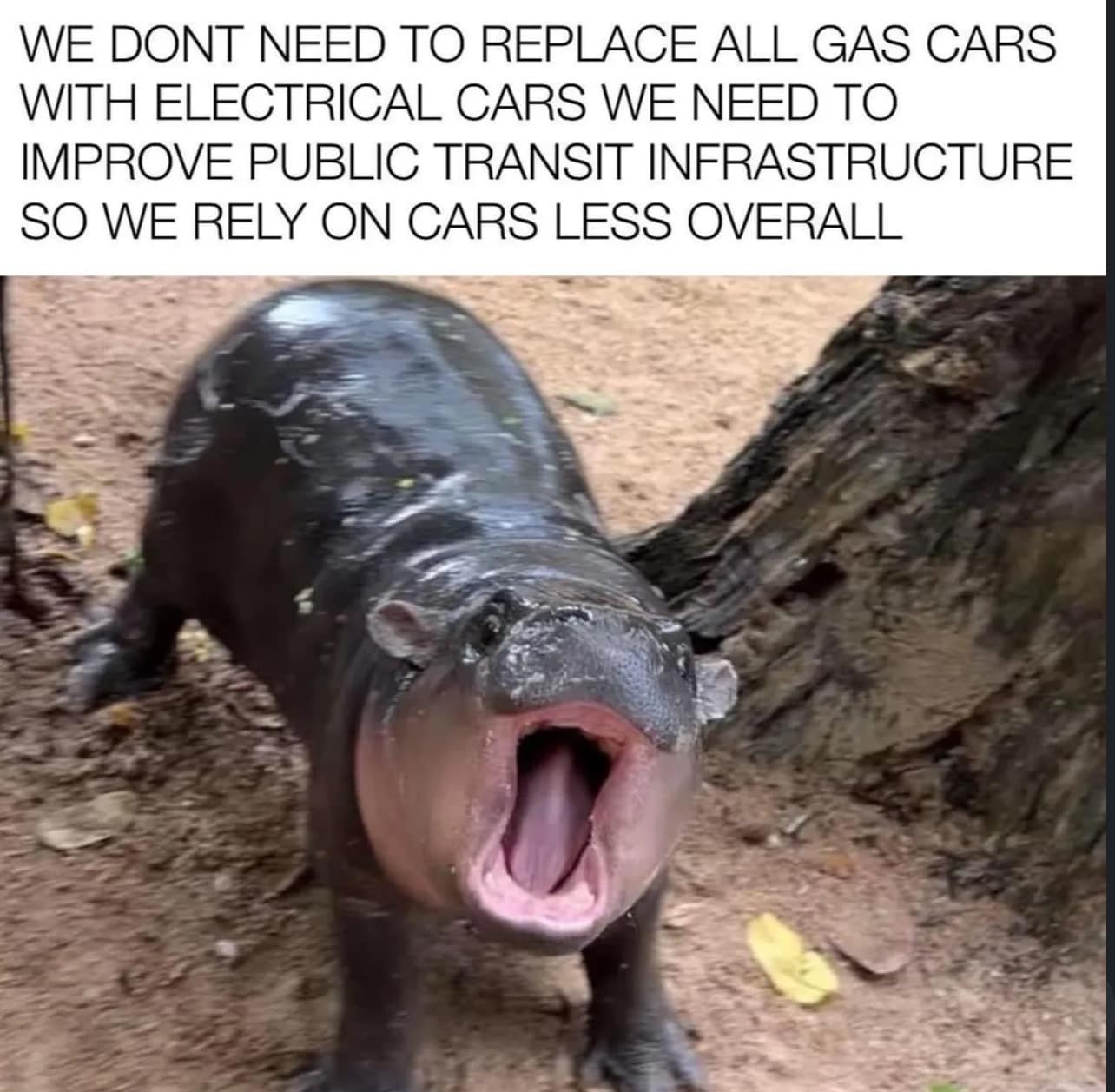Fuck Cars
A place to discuss problems of car centric infrastructure or how it hurts us all. Let's explore the bad world of Cars!
Rules
1. Be Civil
You may not agree on ideas, but please do not be needlessly rude or insulting to other people in this community.
2. No hate speech
Don't discriminate or disparage people on the basis of sex, gender, race, ethnicity, nationality, religion, or sexuality.
3. Don't harass people
Don't follow people you disagree with into multiple threads or into PMs to insult, disparage, or otherwise attack them. And certainly don't doxx any non-public figures.
4. Stay on topic
This community is about cars, their externalities in society, car-dependency, and solutions to these.
5. No reposts
Do not repost content that has already been posted in this community.
Moderator discretion will be used to judge reports with regard to the above rules.
Posting Guidelines
In the absence of a flair system on lemmy yet, let’s try to make it easier to scan through posts by type in here by using tags:
- [meta] for discussions/suggestions about this community itself
- [article] for news articles
- [blog] for any blog-style content
- [video] for video resources
- [academic] for academic studies and sources
- [discussion] for text post questions, rants, and/or discussions
- [meme] for memes
- [image] for any non-meme images
- [misc] for anything that doesn’t fall cleanly into any of the other categories
Recommended communities:
view the rest of the comments

During WWII they invented the concept of gross domestic product to quantify a country's ability to wage war. The higher the GDP, the bigger the military it could support.
GDP is a measure of how much economic activity there is. If I pay you and then you pay someone else and then that person pays me the same amount we've increased the GDP without actually doing anything. So the US, knowing this was their key performance indicator, set about increasing GDP.
So they make everyone buy a car, then gas, then service, then insurance instead of building rail infrastructure. The same goes for child care: If you make it so both parents have to work and pay someone else to watch their kids that's a much bigger boost to GDP than one or even both parents being able to stay home and raise their kids. Having everyone in a suburb have to buy their own lawnmower and trimmer and grill and stove and washer/dryer and dishwasher also boosts GDP way more than sharing things.
Plus there's the fact that cars require a lot of the same technologies and factories as a lot of war materiel. If we were ever to be in another global conflict we'd need to build all the guns and trucks and uniforms at home, and without a strong car industry we'd have to start a lot of that from scratch.
But we've got the biggest GDP in the world so I guess that's something.
Wrong. This transfer of funds would be taxed in some form or the other. GST if u r a registered business. If u aren't, it would come under personal income tax. Therefore, it would not be profitable for you to do this money exchange without expecting something in return. If you say that you simply enjoy seeing cash change hands, then u r generating value. U r getting pleasure in return of doing this experiment. Soooo that does come under GDP.
Now of course, GDP shouldn't be the only metric you judge a country by. It's clearly very flawed in measuring stuff like quality of life per person, wealth inequality and so on. However, it doesn't mean that you should completely ditch it either. It certainly has its use case when trying to understand the economy of a country.
Wrong. Most jurisdictions have Value-Added Taxes, including I'm pretty sure all places that call their sales tax GST (Goods and Services Tax). In the given scenario, as long as the businesses were making those purchases (as business expenses), they would take the taxes paid as ITCs (Input Tax Credits), and be left will a GST bill of NIL.
Source: Here's Canada's info on ITCs. It's pretty similar in other jurisdictions.